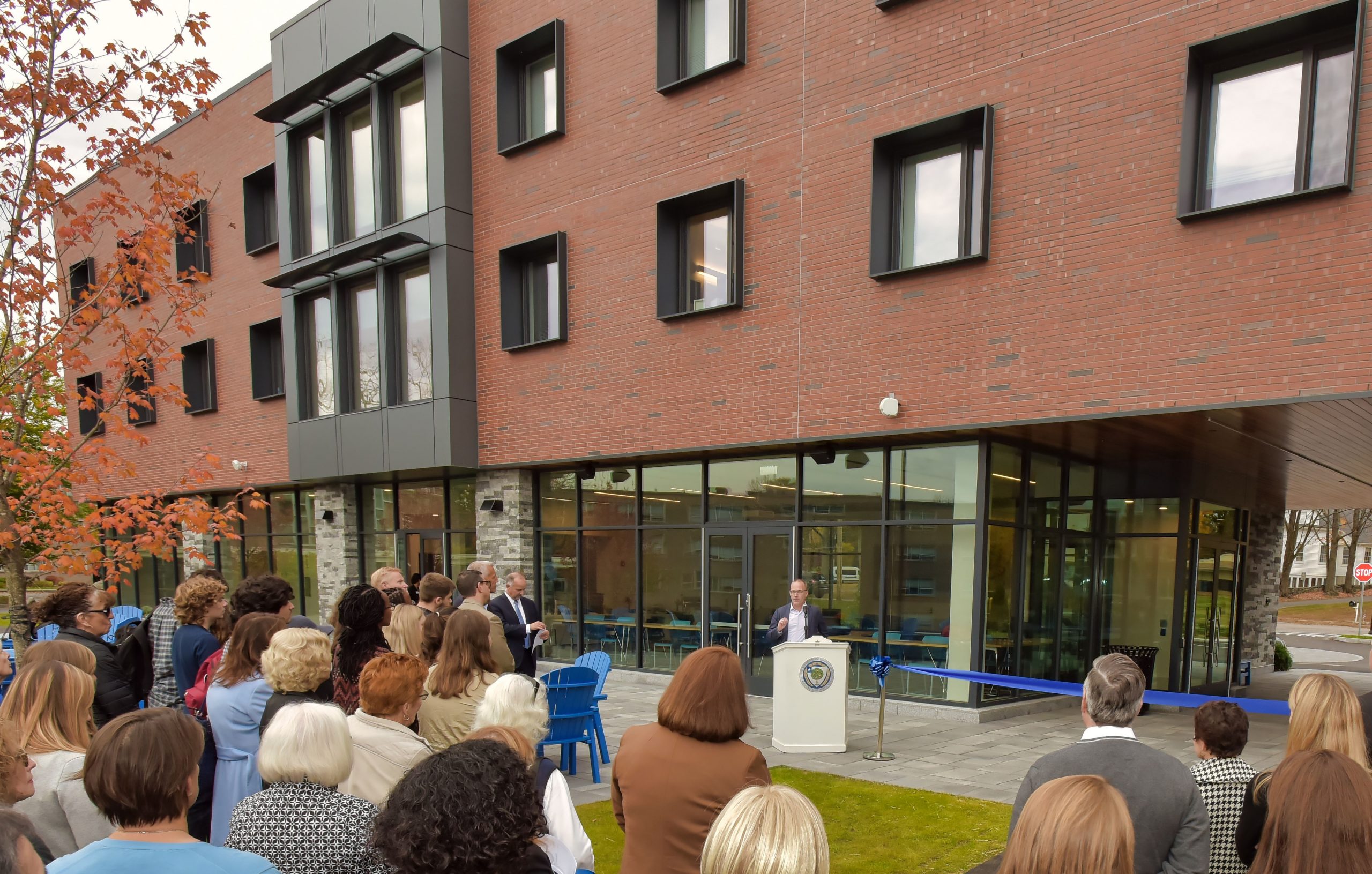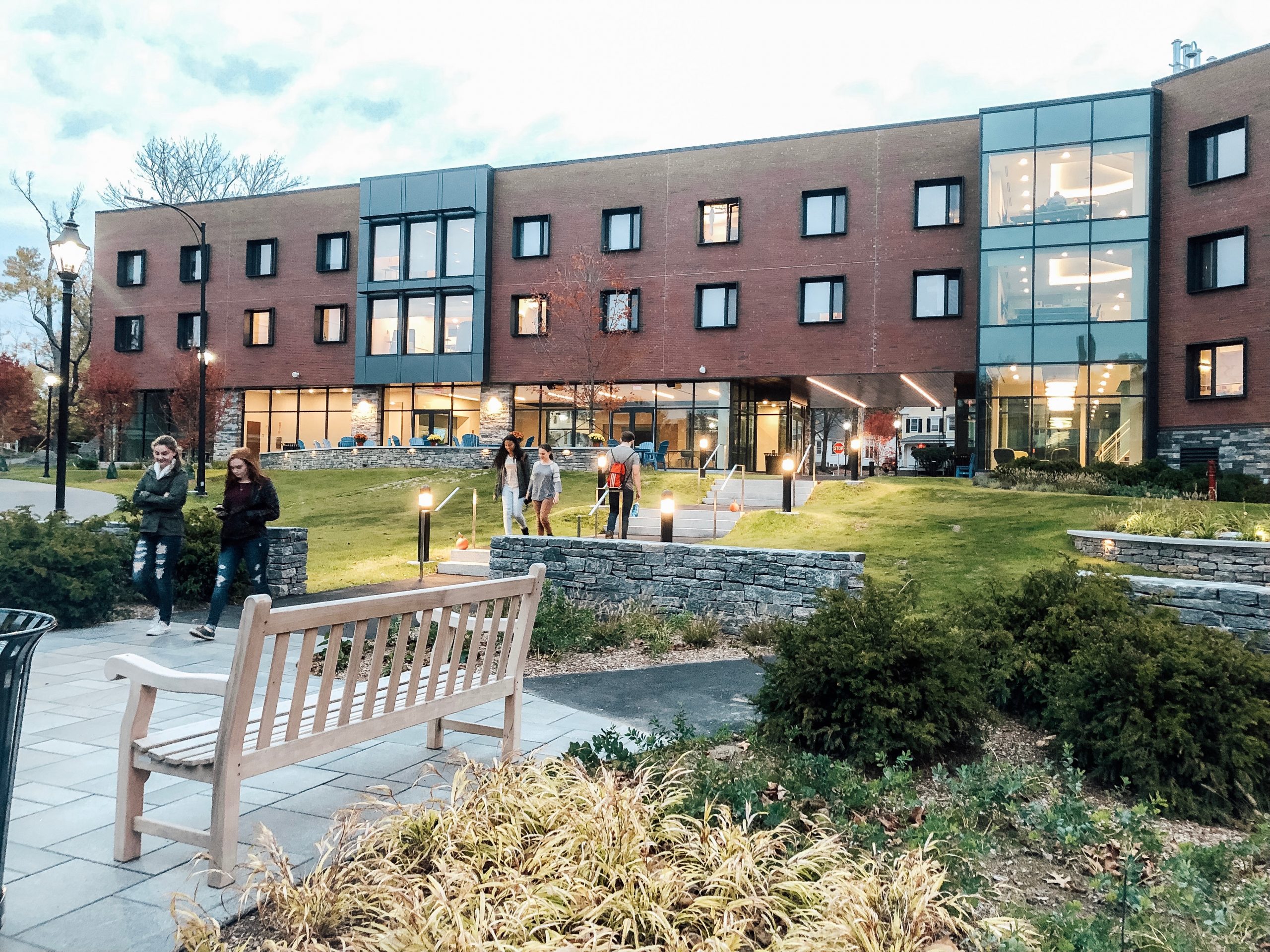Students Celebrate First Eight Weeks Living in a Passive House Residence Hall
submitted by SGA
Norton, MA – Wheaton College hosted a ribbon cutting of the new Passive House (PHIUS) certified residence hall on Oct. 25 to celebrate this revolutionary design in sustainable student life.

Jacob Higginbottom speaks to attendees at the ribbon cutting for Pine Hall, Wheaton College’s newest residence hall. / Photo by Keith Nordstrom, Wheaton College
SGA, a tech-forward architecture and interior design firm, has designed two such residence halls that opened for the fall 2019 semester as the first in Massachusetts to meet the extremely rigorous energy-efficiency standards of the Passive House Institute US. Williams and Wheaton Colleges now have feedback from students that have occupied these two buildings for two months and the feedback is very positive.
“We have been thrilled to present Pine Hall as passive house construction. People are incredibly impressed by the efficiency that this building is designed to achieve. The new residence hall is a source of pride, not only for the residents who live there, but also the community as a whole,” says Ed Burnette, associate dean for campus life, Wheaton College.
Passive building design implements “a set of design principles used to attain a quantifiable and rigorous level of energy efficiency within a specific comfort level.” Energy efficiency stems from continuous insulation throughout an airtight building envelope, high-performance windows, balanced heat- and moisture-recovery ventilation, management of solar gain, and elimination of thermal bridging. Certification with PHIUS ensures that energy performance in reality aligns with energy modeling targets.
The benefits of these residence halls being designed to passive house standards are proving out both in terms of student health and wellness, and a 70% reduction in operating costs. Williams College has already established an energy monitoring program which will compare the actual versus modeled energy performance over the next 18-36 months, offering periodic feedback for the management and operations to fine tune the building performance. SGA is excited to publish these results.
“Through these projects, SGA has gained significant experience in applying PHIUS principles to two very different building types, and has developed a keen sensitivity to the pros and cons of each system,” says Jacob Higginbottom, director of higher education. “We owe our expertise in part to working with forward-thinking clients who are as committed to sustainability and energy performance as the Williams and Wheaton administrations are. We look forward to applying this experience to projects of other similarly advanced clients.”
“Our current student body and prospective applicants, along with their parents, are very concerned about climate change and actionable steps the college may be taking to address this threat. Pine Hall and its passive house certification represent the college’s commitment toward lowering our carbon footprint, investing for energy efficiency, integrating performance based system design and achieving low impact development,” says John Sullivan, director of facilities, Wheaton College.
In addition to providing responsible design critical for global wellness, Higginbottom believes that sustainability initiatives are already playing a significant role in students’ criteria for college selection. He predicts: “As the competition for students increases, so will the adoption of PHIUS and other similarly aggressive carbon neutrality strategies, and SGA is positioned to implement them without significant additional capital investment. It’s an exciting time.”











